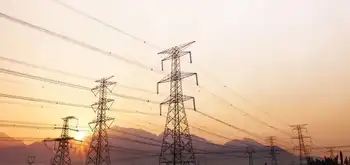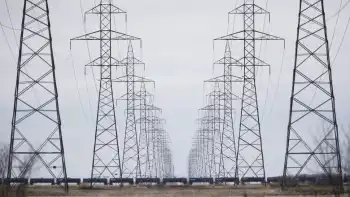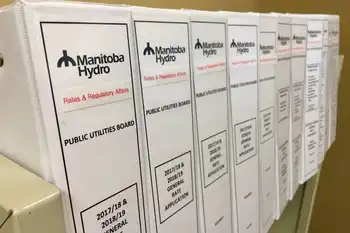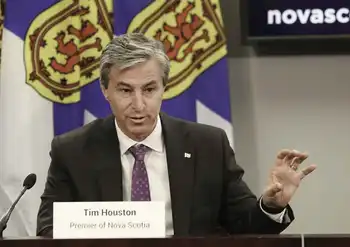Duke agrees to reopen Edwardsport deal
EDWARDSPORT, INDIANA - Upset by a growing ethics scandal at Duke Energy Corp., a group of large industrial customers is starting to shove back.
The customers, which include steel mills, major retailers and large manufacturers, have demanded that the utility renegotiate an agreement that was reached in September that had customers paying for much of the latest cost overruns at Duke's $2.9 billion coal-gasification plant in Edwardsport.
Duke agreed to reopen negotiations, clearing the way for large industrial customers to push for the utility to swallow more of the cost. All the key players filed a joint motion with state regulators saying they would renegotiate the latest round of cost overruns, worth about $500 million.
The players include Duke, Nucor Steel, a coalition of large industrial customers and the Indiana Office of Utility Consumer Counselor.
Some said they were upset by the contents of private e-mails between Duke executives and state regulators that were recently disclosed in The Indianapolis Star.
The e-mails "raise questionsÂ… as to the relationships between and among those individuals, Duke Energy and the former Chairman of the Commission during the period of time that the settlement agreement was being negotiated and submitted," according to the petition.
In recent weeks, the newspaper has published e-mails that show Duke executives frequently talked about hiring away current and former state regulators. They also showed a familiarity that allowed them to banter about sports, alcohol and luxury cars. And they talked about the need to get together and talk privately over dinner and drinks.
Such communications raised questions about whether all parties to the cost-overrun talks were negotiating in good faith, said Timothy L. Stewart, an attorney at Lewis & Kappes, who represents industrial customers.
"Those private talks were just inappropriate and cast doubt in our minds upon the integrity of the process," he said in an interview.
Three of those who exchanged e-mails since have been fired or resigned, including James Turner, the second-highest-paid executive at Duke Mike Reed, president of Duke Energy Indiana and David Lott Hardy, chairman of the Indiana Utility Regulatory Commission.
Asked whether the large customers are trying to pressure Duke — under public scrutiny from a widening scandal — to agree to a lower customer rate, Stewart said: "We don't have anything written out as a goal. But we would not expect, if a new settlement is reached, to be the same amount as the old settlement."
The Edwardsport plant is one of the most expensive projects in Indiana history. It would be the first commercial-scale gasification plant in the country when it starts operating in 2012.
But the plant has increasingly come under fire for rising costs. The price tag has ballooned to $2.9 billion, up from an original estimate of $1.9 billion in 2007. The scrapped settlement would have forced customers to pay as much as 14 percent more for their electricity over five years.
The company has said the engineering required more steel, piping, electric cable and other materials than originally expected, because this is the first time this technology has been used on this scale.
The company says the 630-megawatt plant is sorely needed to keep up with growing energy needs and would replace several older, coal-fired power plants. Duke, based in Charlotte, N.C., is the largest electric utility in Indiana, with 780,000 customers in 69 of the state's 92 counties.
Some opponents of the project say the plant's technology is unproven and too costly. It produces electricity by gasifying coal, stripping out some pollutants, and then burns the gas to produce power. Duke said the plant's efficiency reduces its carbon emissions per megawatt-hour by nearly half.
Earlier this year, regulators approved Duke's request to increase the projected cost recovery to $2.35 billion. Then, in April, Duke told regulators it needed $530 million more than that to complete the project, which the company said would represent an additional 3 percent increase in rates.
But that was too rich for some, raising objections from the Indiana utility customer counselor and the Duke Energy Indiana Industrial Group, which represents large commercial customers, and others. After much additional negotiation, they came to an agreement in September, with Duke pledging not to file for a general rate increase before March 2012.
But some parties, including citizens and environmental watchdog groups, continued to call the process tainted and unfair.
"The IURC should now move forward and fully investigate whether, as a result of these myriad cozy relationships that are now coming to light, undue influence was exerted upon the regulatory process," said Kerwin Olson, program director of the Citizens Action Coalition.
Duke, under pressure to complete the plant without delays, rising costs or bad feelings among its largest customers, said it agreed to renegotiate the settlement.
"This action is the best path forward for the Edwardsport project at this time," James E. Rogers, Duke Energy chairman, president and chief executive officer, said in a statement. "While we are disappointed the original settlement is being withdrawn, we understand the parties' desire to negotiate a new settlement that is separate and apart from recent events."
He added: "The support and cooperation of the settling parties is important to us, so we have agreed to re-examine and renegotiate the terms of the cost settlement. The merits of the Edwardsport plant are strong, and construction continues to move forward."
David Stippler, the Indiana utility consumer counselor, said he continues to support the Edwardsport project. But he added that because of recent reports about the inappropriate e-mail exchanges, "it is appropriate to reopen the negotiation process and take a fresh look at the issues addressed in this case."
The FBI and the Indiana inspector general are continuing to probe the ethics matter. No one has been charged with a crime.
Related News

Buyer's Remorse: Questions about grid modernization affordability
WASHINGTON - Utilities’ pursuit of a modern grid to maintain the reliability and safety pillars of electricity delivery has raised a lot of questions about the third pillar — affordability.
Utilities are seeing rising penetrations of emerging technologies like distributed solar, behind-the-meter battery storage, and electric vehicles. These new distributed energy resources (DER) do not eliminate utilities' need to keep distribution systems safe and reliable.
But the need for modern tools to manage DER imposes costs on utilities that some regulators, lawmakers and policymakers are concerned could drive up electricity rates.
The result is an increasing number of legislative and regulatory grid modernization…




